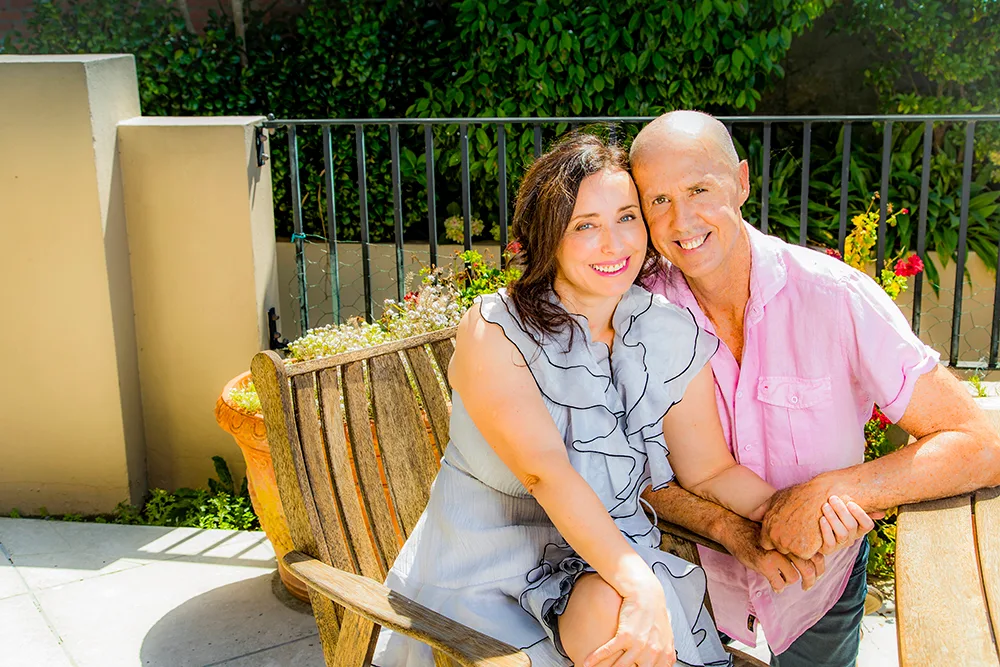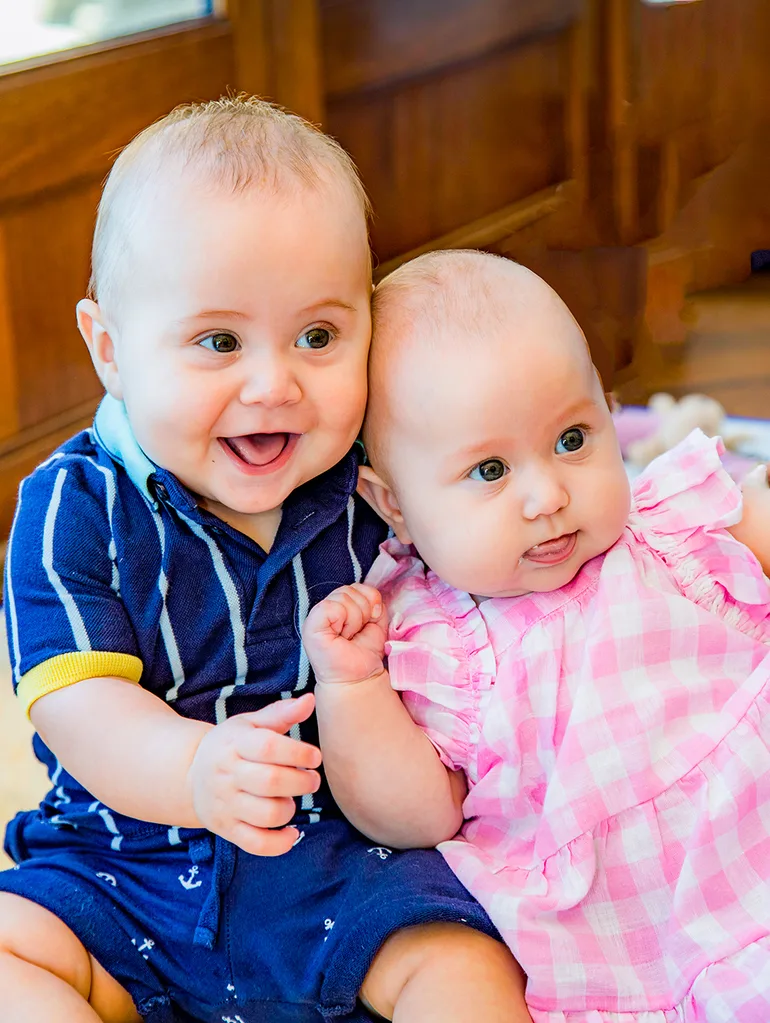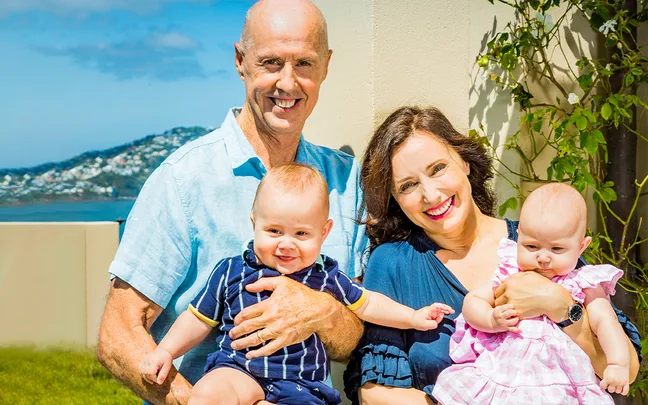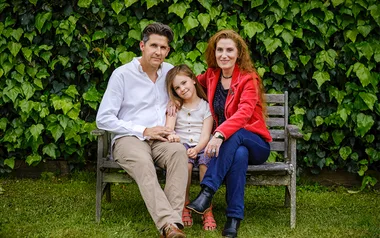Tatjana and Peter Kane hope the story behind their much-loved babies Jackson and Amelia, who were born in Georgia to two surrogate mothers, might offer families struggling to have a child a glimmer of hope.
“Nobody chooses surrogacy,” says Tatjana. “There’s usually so much suffering behind the decision – cancer, a hysterectomy, infertility, miscarriages… Before, when I used to see a happy-ending story about struggling people who managed to have a baby, I used to dream one day that would be us.”
The Wellington couple met in Budapest in 2010, when they were both competing for New Zealand in a triathlon. It was love at first sight and Peter got to meet Tatjana’s Serbian family, who had travelled to Hungary to cheer her on, before they even had their first date.
“I don’t know that I got the seal of approval straightaway,” jokes Peter. “But he definitely did later!” smiles Tatjana, who is also mum to Emma, 19.
Peter, 64, and police IT consultant Tatjana, 53, married four years ago, then underwent numerous IVF procedures to try to have a baby together. Their son Sasha was born in 2020 at Wellington Regional Hospital at 23 weeks old. Tragically, he passed away after five weeks in the neonatal intensive care unit the day before New Zealand went into lockdown.
“We weren’t allowed to be present at his burial due to lockdown rules, which compounded our grief,” recalls Peter, who owns a software company. “We were advised we needed a surrogate, but we were also told it would be years of waiting for an altruistic one.”

Adds Tatjana, “Altruistic surrogacy, although a noble concept, doesn’t provide enough surrogates in reality, leaving many gay or infertile couples childless. We’re already breaking some barriers being older parents. Waiting years would make us very, very old. We decided we needed to find a different option.”
They interviewed surrogacy agencies in the US, Canada, Ukraine and Georgia, ultimately choosing Georgia after Peter talked to a Kiwi woman who had two children via a surrogate there.
Tatjana describes the process of overseas commercial surrogacy as “surreal”, with all appointments, including surrogate interviews and ultrasound appointments, conducted online via emails, Viber chats and video meetings.
“I was scared,” she confesses. “I kept thinking, ‘Is this real? Is this actually happening or not?'”
The pair went through the process of selecting the surrogates, opting to have two women carry one baby each, instead of one surrogate carrying twins, which involves more complications for both the babies and the surrogate.
There were some hiccups when one embryo transfer failed and another potential surrogate contracted COVID the day before the scheduled transfer. It took two emotionally draining years, but the overjoyed couple got to meet their son Jackson on 14 July 2022.
They stayed in an apartment in Georgia’s capital Tbilisi for more than four months, with their daughter Amelia born 12 weeks after Jackson on 14 October.
“It really was a rollercoaster,” shares Tatjana. “Now that I look back at Georgia and what we’ve done, we’re actually so proud of ourselves. At that time, the country was dealing with large numbers of Ukrainians escaping the war and Russians fleeing Putin’s regime, but it was safe to live in, with rich history, amazing food and friendly people.”

Jackson and Amelia were carried by different surrogates.
Both Peter and Tatjana are aware that commercial surrogacy can be a divisive issue, and they wanted to make sure that their surrogates were well looked after and compensated.
“We did have some concerns about going to a country that is not as well off as New Zealand for surrogacy,” Tatjana tells. “We were determined to make it an ethical process. We wanted to treat everybody the best. For our surrogates, one of them has been able to start a new business and the other one has bought an apartment.”
Peter points out that there are other hurdles that Kiwis looking at overseas surrogacy need to consider. Currently, New Zealand law considers an international surrogate the mother and her husband the father of the child.
The Kanes had to adopt their own kids, going through a court process that requires a DNA test and consent from the surrogates. Tatjana understands that the process is financially out of reach for a lot of Kiwis, but people going through the expensive process of IVF may want to investigate the prices of commercial surrogates.
“In terms of costs, it starts at $48,000 and if you need an egg donor, it’s $65,000 or more,” she says. “As for living in Georgia, apartments there are about $3000 to $4000 per month, so it’s an expensive option.”
Wiping away tears, Tatjana concludes, “It’s such a rewarding journey, even if it does require lots of emotional resilience and patience. We feel incredibly lucky. We just can’t believe our dream of having children together has come true.”
 Phil Greig
Phil Greig
.jpg?resize=380%2C285)

